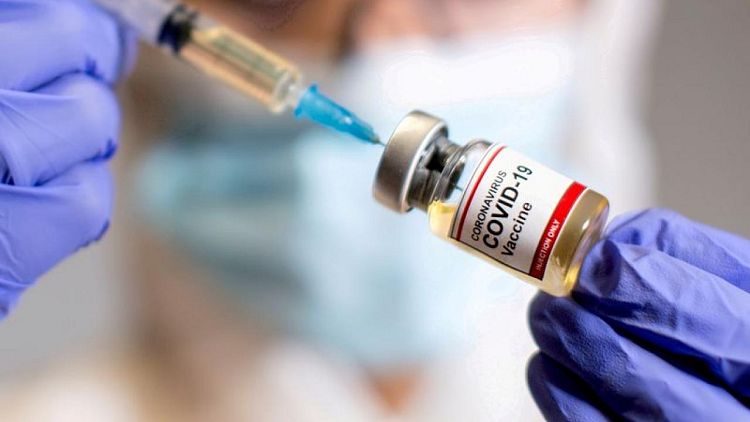By William James
CARBIS BAY, England -British foreign minister Dominic Raab said on Friday there was no doubt some countries were using vaccines as a diplomatic tool to secure influence but Britain did not support so-called vaccine diplomacy.
Raab was speaking to Reuters on the sidelines of a G7 summit in Cornwall, southwestern England, that was likely to be dominated by the West's attempts to reassert its influence as the world looks to rebuild from the COVID-19 pandemic.
Western diplomats fear Russia and China are using their vaccines to gain influence across the world, especially in poorer countries that do not have their own production or the means to buy shots on the international market.
Asked whether he was concerned that China and Russia could use vaccines in exchange for influence, Raab said: "There's no doubt there's some of this is going about, and we don't support vaccine diplomacy, let alone blackmail.
"We think that we've got a moral duty, but also a strong vested interest in getting the world vaccinated," he said.
British Prime Minister Boris Johnson expects the G7 to agree to donate 1 billion COVID-19 vaccine doses to poorer countries during its summit, and help inoculate the world by the end of next year.
Raab said Britain's contribution would come with no strings attached, with at least 80% being distributed by the COVAX international vaccine initiative. The rest would be provided to "strategic close countries where we have a particular relationship, and no, we don't insist on conditionality", he added.
'TEAM EFFORT'
The United States has promised to donate 500 million doses - which U.S. President Biden stressed would come with no strings attached.
"We would only think it was responsible to be promoting vaccines that the WHO has sanctioned as safe to distribute," Raab said.
"But it's a team effort. And we want the countries like China and Russia to come together to tackle the problems of pandemic, but also climate change, and also to respect the basic principles of international law."
China currently has two WHO-approved COVID-19 vaccines, while a Russian-developed shot is waiting approval. Russia said last week it expected that approval in the next couple of months.
Raab also said he would be speaking to Russian Foreign Minister Sergei Lavrov shortly, without giving a specific date. He declined to comment on issues he would raise at that meeting.
Nevertheless Raab criticised Russia as a leading protagonist of cyber attacks, calling for the G7 to take a united stand against all such incidents, whether conducted by state or non-state actors.
"These activities are contrary to international law, many of them, and they're very damaging, some of them are done for pure theft, or for profit, others are done just to create havoc," he said.
"We ought to be clear as an international community that cyber attacks on hospitals, on schools, on critical national infrastructure - that's wrong. That's unjustifiable, it's beyond the pale."
Asked about the recent forced landing of a civilian aircraft in Belarus, Raab said the country was slipping "into pariah status".
"We need Belarus to step up and live up to the basic, fundamental, cardinal rules of international law," he said.
